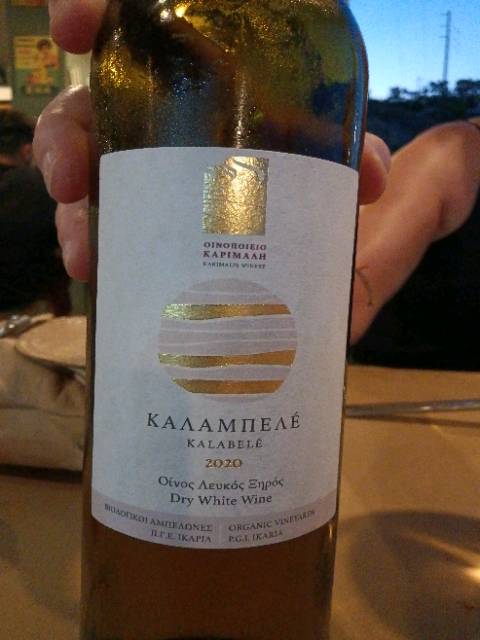Nestled in the heart of the Aegean Sea lies the serene island of Ikaria, a place renowned not only for its breathtaking landscapes and the longevity of its inhabitants but also for its rich viticultural heritage. Ikaria wine, with its deep-rooted history and unique characteristics, stands as a testament to the island’s ancient winemaking traditions and the natural bounty of this remote paradise. This article delves into the fascinating world of Ikaria wine, exploring its history, production processes, varieties, and the cultural significance it holds for the people of Ikaria.
Historical Roots of Ikaria Wine
Ikaria’s winemaking tradition dates back thousands of years, with evidence suggesting that viticulture was practiced on the island as early as the 5th century BC. The island’s strategic location along ancient trade routes facilitated the exchange of viticultural knowledge and practices with other prominent wine-producing regions of the Mediterranean. Historical records and archaeological findings, including wine presses and amphorae, attest to the significance of wine in Ikarian society.
The ancient Greeks revered Ikaria for its wine, often referencing it in myths and literature. The island is famously associated with the god Dionysus, the deity of wine, fertility, and revelry. According to legend, Dionysus taught the Ikarian inhabitants the art of winemaking, a gift that would sustain them for centuries. This mythical connection to Dionysus imbues Ikaria wine with a sense of mystique and cultural depth.
The Terroir of Ikaria
The unique terroir of Ikaria plays a crucial role in shaping the distinctive qualities of its wine. The island’s rugged terrain, with its steep slopes and rocky soils, provides an ideal environment for viticulture. The Mediterranean climate, characterized by hot, dry summers and mild, wet winters, further contributes to the growth of high-quality grape varieties. The combination of abundant sunshine, sea breezes, and well-drained soils creates optimal conditions for grape cultivation.
Ikaria’s diverse microclimates also influence the flavors and characteristics of its wines. Vineyards located at higher altitudes benefit from cooler temperatures and greater diurnal temperature variations, resulting in wines with balanced acidity and complex aromas. In contrast, lower altitude vineyards, with their warmer conditions, produce grapes with concentrated flavors and higher sugar content.
Indigenous Grape Varieties
One of the most intriguing aspects of Ikaria wine is its reliance on indigenous grape varieties, many of which are found exclusively on the island. These ancient grape varieties, preserved through generations of careful cultivation, contribute to the unique identity of Ikaria wine.
Fokiano: This red grape variety is one of the most prominent on the island. Fokiano grapes produce wines with deep color, robust tannins, and flavors of dark berries, spices, and herbs. They are often used in both dry and sweet wines, showcasing their versatility.
Begleri: A rare white grape variety, Begleri is cherished for its ability to produce aromatic and refreshing wines. Wines made from Begleri grapes typically exhibit floral and citrus notes, with a crisp acidity that makes them perfect for the island’s seafood cuisine.
Kotsifali: Though more commonly associated with Crete, Kotsifali is also cultivated in Ikaria, where it thrives in the island’s unique conditions. This red grape variety is known for its soft tannins and flavors of red fruit and spices.
Traditional Winemaking Techniques
The production of Ikaria wine is deeply rooted in traditional winemaking techniques, many of which have been passed down through generations. While modern technology has been embraced to some extent, many Ikarian winemakers continue to employ age-old methods that reflect the island’s cultural heritage.
One such technique is the use of amphorae, large clay vessels that have been used for wine fermentation and storage since ancient times. Amphorae allow for natural micro-oxygenation, which enhances the complexity and aging potential of the wine. The porous nature of the clay also imparts unique mineral characteristics to the wine, further distinguishing it from wines aged in wooden barrels.
Another traditional practice is the sun-drying of grapes to produce sweet wines. Grapes are spread out in the sun for several days, concentrating their sugars and flavors. This method, known as passito, results in rich, luscious wines with intense sweetness and depth.
Modern Innovations in Ikarian Winemaking
While tradition remains at the heart of Ikarian winemaking, modern innovations have also found their place in the island’s vineyards and wineries. The adoption of sustainable and organic farming practices has gained momentum, driven by a growing awareness of environmental stewardship and the desire to produce wines that reflect the island’s natural purity.
Many Ikarian winemakers have embraced biodynamic viticulture, a holistic approach that views the vineyard as an interconnected ecosystem. This method emphasizes the use of natural preparations, the alignment of agricultural practices with lunar and cosmic cycles, and the promotion of biodiversity. Biodynamic viticulture not only enhances the health and vitality of the vines but also contributes to the unique expression of Ikaria’s terroir in the wine.
The introduction of temperature-controlled fermentation and state-of-the-art winemaking equipment has also allowed Ikarian producers to fine-tune their craft and produce wines of exceptional quality and consistency. These modern techniques, combined with traditional practices, have elevated the profile of Ikaria wine on the global stage.
Notable Ikarian Wineries
Several wineries on the island have garnered acclaim for their commitment to quality and their dedication to preserving the island’s winemaking heritage. Here are a few notable Ikarian wineries:
Afianes Wines: Founded in 1997, Afianes Wines is a pioneer in the revival of Ikarian winemaking. The winery is known for its focus on indigenous grape varieties and its use of traditional methods such as amphora aging. Afianes Wines has received numerous awards for its exceptional wines, including its flagship red, Afianes Fokiano.
Karimalis Winery: Located in the village of Raches, Karimalis Winery is a family-owned estate that has been producing wine for generations. The winery is renowned for its organic farming practices and its production of natural wines with minimal intervention. Karimalis Winery’s Begleri White is particularly celebrated for its aromatic profile and crisp acidity.
Tsantiris Winery: This small boutique winery is dedicated to producing high-quality wines that reflect the unique terroir of Ikaria. Tsantiris Winery’s Kotsifali Reserve is a standout, offering a complex and well-structured expression of the Kotsifali grape.
Ikaria Wine and the Mediterranean Diet
The wines of Ikaria are an integral part of the island’s traditional diet, which is often cited as a key factor in the remarkable longevity of its inhabitants. The Ikarian diet is characterized by its emphasis on plant-based foods, moderate consumption of fish and meat, and the regular inclusion of red wine.
Red wine, in particular, is rich in polyphenols and antioxidants, compounds that have been linked to various health benefits, including reduced risk of heart disease and certain cancers. The moderate consumption of wine, as part of a balanced diet, is believed to contribute to the overall well-being and longevity of the Ikarian people.
Cultural Significance of Wine in Ikaria
Wine holds a special place in the cultural fabric of Ikaria, symbolizing hospitality, celebration, and community. The island’s numerous festivals and social gatherings often center around the sharing of wine, reinforcing its role as a unifying element in Ikarian society.
One of the most significant events is the Ikarian Wine Festival, held annually in the village of Pezi. This festival, which dates back to the 1960s, celebrates the island’s winemaking heritage with music, dancing, and, of course, plenty of wine tasting. The festival provides an opportunity for locals and visitors alike to sample a wide range of Ikarian wines and learn about the island’s viticultural traditions.
Challenges and Future Prospects
Despite its rich heritage and growing recognition, the Ikarian wine industry faces several challenges. The island’s remote location and limited production capacity can make it difficult for Ikarian wines to compete on a global scale. Additionally, the preservation of indigenous grape varieties and traditional practices requires ongoing effort and dedication.
However, there are also numerous opportunities for growth and development. The increasing interest in sustainable and organic wines aligns with the practices of many Ikarian winemakers, offering potential for expanding into niche markets. Tourism also presents a significant opportunity, as more visitors to Ikaria seek to experience the island’s unique wine culture firsthand.
Conclusion
Ikaria wine is more than just a beverage; it is a symbol of the island’s history, culture, and natural beauty. From its ancient roots and traditional winemaking techniques to its modern innovations and cultural significance, Ikaria wine offers a unique and captivating experience for wine enthusiasts and casual drinkers alike. As the island continues to balance its rich heritage with contemporary advancements, the future of Ikaria wine looks promising, ensuring that this enchanting elixir will continue to delight and inspire for generations to come.







